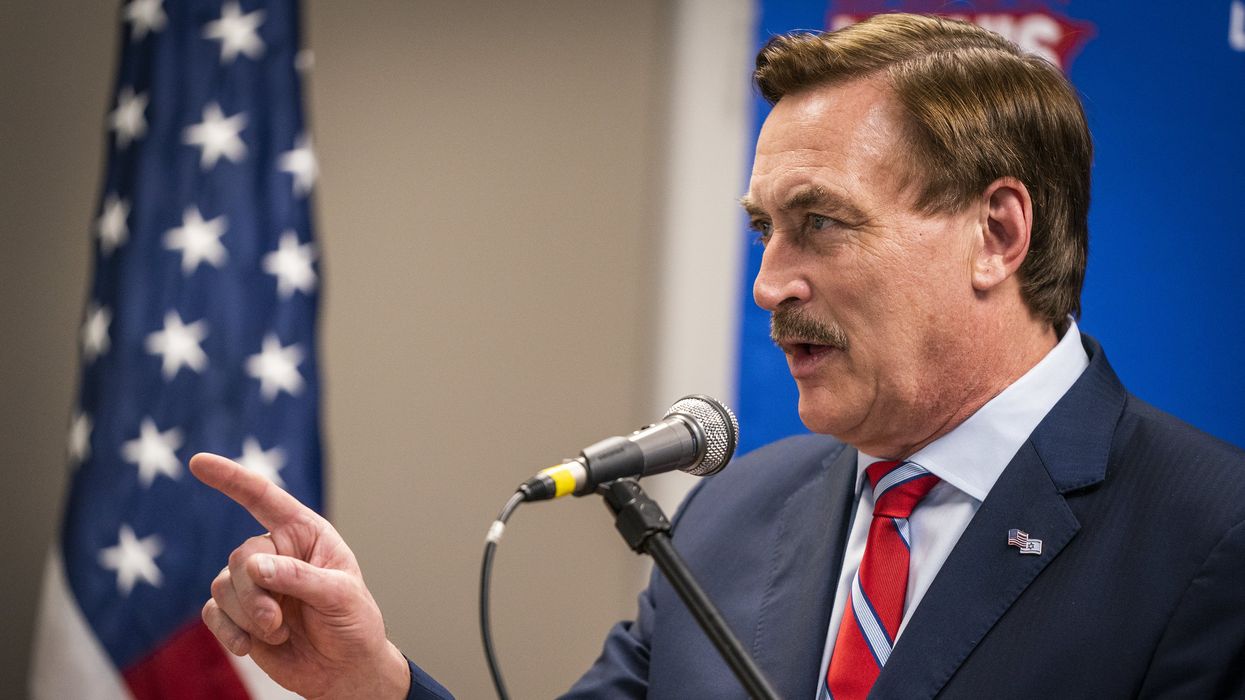Waldman is president of the Brennan Center for Justice at New York University School of Law.
The United States still has one of the world’s most decentralized voter registration systems. We want voter rolls to be up to date and accurate. People move, die, change party identification and so on. But election deniers exploit cracks in the county-by-county system. They challenge legitimate registrations, launch mass purges and seek to weed the voter rolls of citizens they don’t like.
In fact, there’s new evidence that abusive mass voter purges will be a major weapon in the political battles of the coming months. If you can’t win citizens to your side, it appears, then try to prevent them from voting.
The New York Times recently detailed an organized effort involving leaders of the election denial movement. One is Cleta Mitchell, who joined Donald Trump on the notorious phone call with Georgia Secretary of State Brad Raffensperger that is now the subject of two separate indictments. Another is a top deputy to pillow-magnate-turned-election-conspiracy-theorist Mike Lindell. Their acolytes are launching mass challenges of voter registrations, sometimes 1,000 at a time. They say it’s a citizen-led effort to update the rolls and reduce the potential for voter fraud. Don’t believe it for a second.
For one thing, their efforts appear to be focused on precincts that lean Democratic or are home to large communities of color. This seems to be about politics, not voter-roll hygiene.
Another clue: Their methods are bogus. In one incident, activists sent a local election office a list of people on the U.S. Postal Service’s mail-forwarding list who remained registered to vote in the district. Election officials know this is a shoddy approach to roll maintenance. People can ask for their mail to be forwarded for any number of reasons, including college, temporary work assignments, or caring for sick or elderly relatives elsewhere. Sometimes voters haven’t moved an inch; they’ve merely been listed as relocated because someone else in the household asked for mail to be forwarded. In all of these scenarios, the person remains eligible to vote.
A challenge alone should not, in theory, prevent someone from voting. But it can kick off an investigation that results in removal from the rolls if the citizen fails to respond to inquiries — in other words, if they miss a piece of mail. (My colleague Alice Clapman offers a detailed explanation of the right and wrong ways for states to identify ineligible voters and of the laws protecting voters in that process.)
These mass challenges also can resemble a distributed denial of service attack, with emails flooding a website, aiming to just gum up the works. Election officials who are responding to excessive numbers of abusive demands for action won’t have time to process new registrations.
There has been, of course, a tested way to keep the rolls updated: the Electronic Registration Information Center, or ERIC. States use this nonpartisan information-sharing organization to reduce error in maintaining their rolls. For example, rather than relying on mail-forwarding requests, ERIC looks for information like an application for a driver’s license in a different state. It also has access to sensitive information such as encrypted Social Security numbers, reducing the number of false positives. People who move rarely vanish.
ERIC is undoubtedly the best way to avoid voter fraud and keep lists accurate and complete. Bizarrely, a right-wing conspiracy theory claims that it was all a nefarious plot. Nine GOP-dominated states have withdrawn from the system. Gov. Ron DeSantis, for example, boasted of bringing Florida into the ERIC system in 2019, then withdrew in 2023. Nothing changed but the politics.
A right-wing alternative called EagleAI has been launched, supposedly to search for fraud. As we have documented before, it’s poorly designed to catch real wrongdoing — but it could be a tool for disenfranchisement.
Let’s try to recover bipartisan agreement on how to keep voter rolls in shape. Meanwhile, we should brace for a year of efforts by election deniers to wreck what works in our system. Voting rights advocates in and out of government are getting ready to fight back in court. The ability of many of our fellow citizens to participate in this pivotal election will depend on the outcome of this fight.
This article was first published March 12 in Waldman's weekly newsletter, “The Briefing.”




















Trump & Hegseth gave Mark Kelly a huge 2028 gift